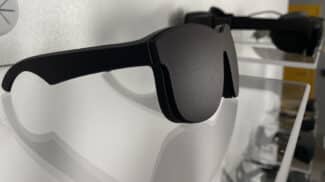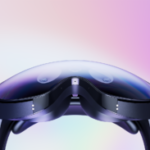If Meta’s top researcher is correct, VR headsets and AR glasses will exist parallel to one another “for a very long time”.
Eyewear for AR and VR use cases are developing along somewhat similar paths while relying on related technologies — and each week it seems there’s new marketing jargon to confuse people about exactly which is which — but Meta’s head of research Michael Abrash sees technological differences putting each on the path to succeeding our current paradigms in mobile phones and personal computing.
During Meta’s recent press tour of research labs in Washington state, Abrash responded to a question from UploadVR about confusion over the differences between AR & VR. Here’s his full answer to the question of whether VR headsets are just a transitional technology to AR glasses:
“I think they’re both equally important for a very long time because of technological differences.”
“Because VR glasses have infrastructure available, they don’t have to be usable everywhere, they don’t have to be something you can walk around the streets in. So their ability to let you do work would obviously be more powerful — if you have a wider field of view, you have higher resolution, if it can run longer — all these things.”
“The way I think of it is that AR glasses are the things that are always with you except perhaps when you’re using VR. It’s the way your phone is always with you…if you think about it as the personal computer as the productivity device, and the phone as the always connected device, then AR in the near future feels to me like the successor to the phone and VR feels like the successor to the personal computer.”
“And it is worth noting, you know people rarely realize this, but there are over a billion personal computers in use today and they really are the productivity devices. So if you think about that division — there are more smartphones for sure and they’re used more often — but personal computers are extremely valuable and VR can be a better way to do the same work that you do with personal computers by quite a bit in the long run.”





